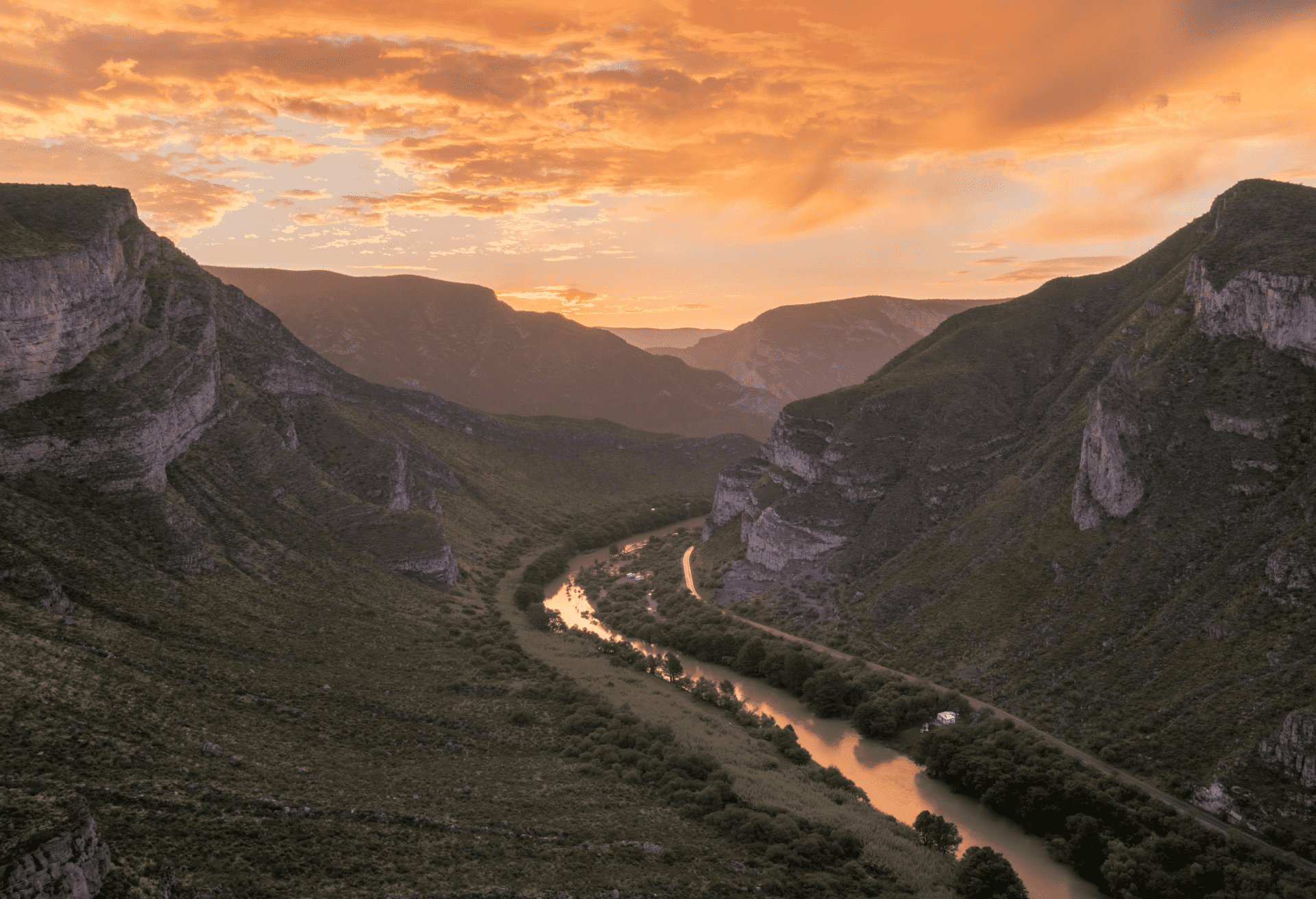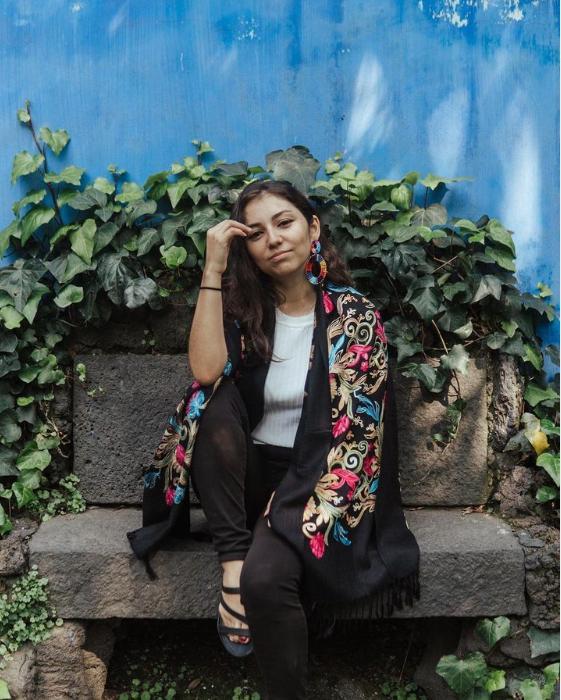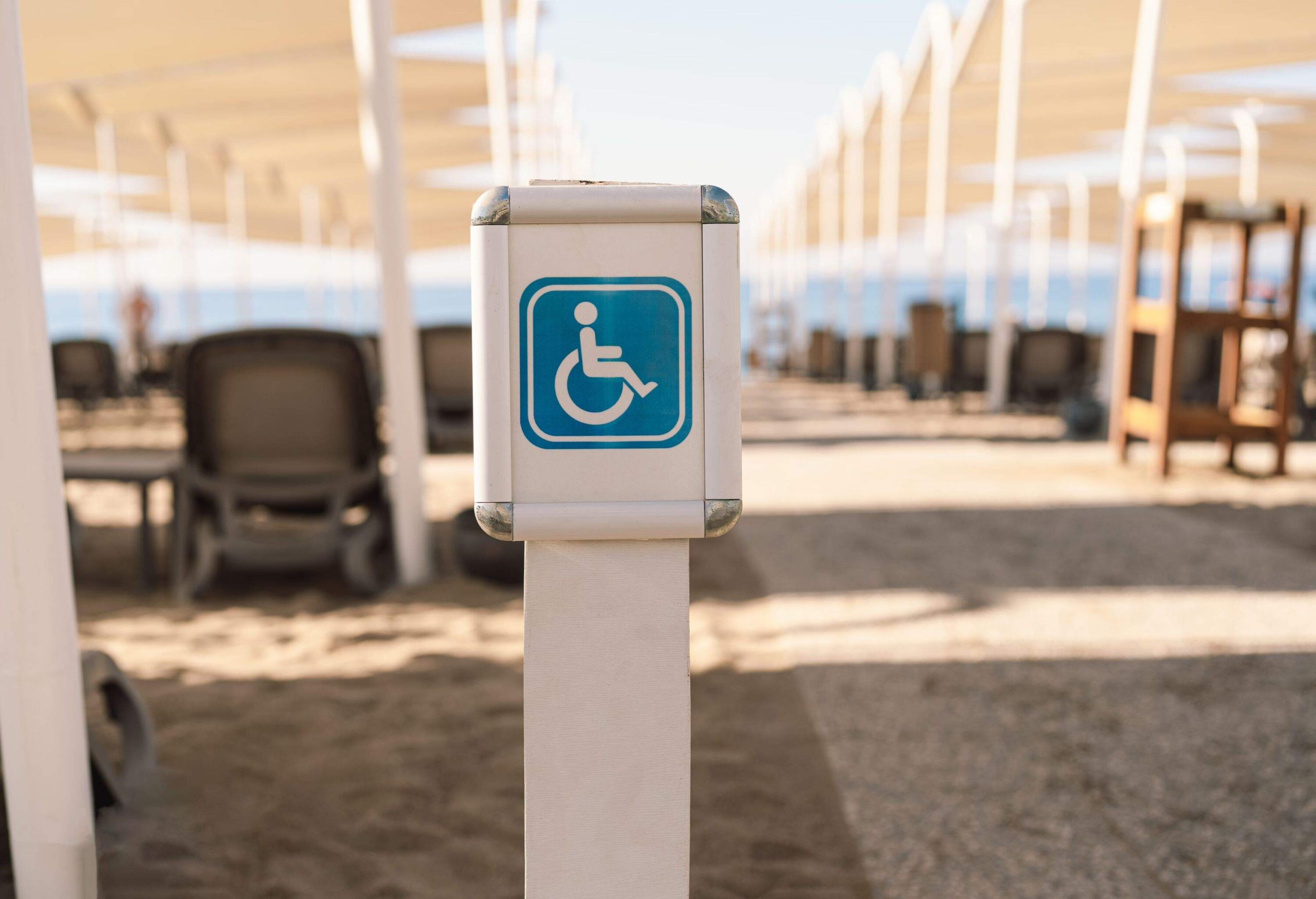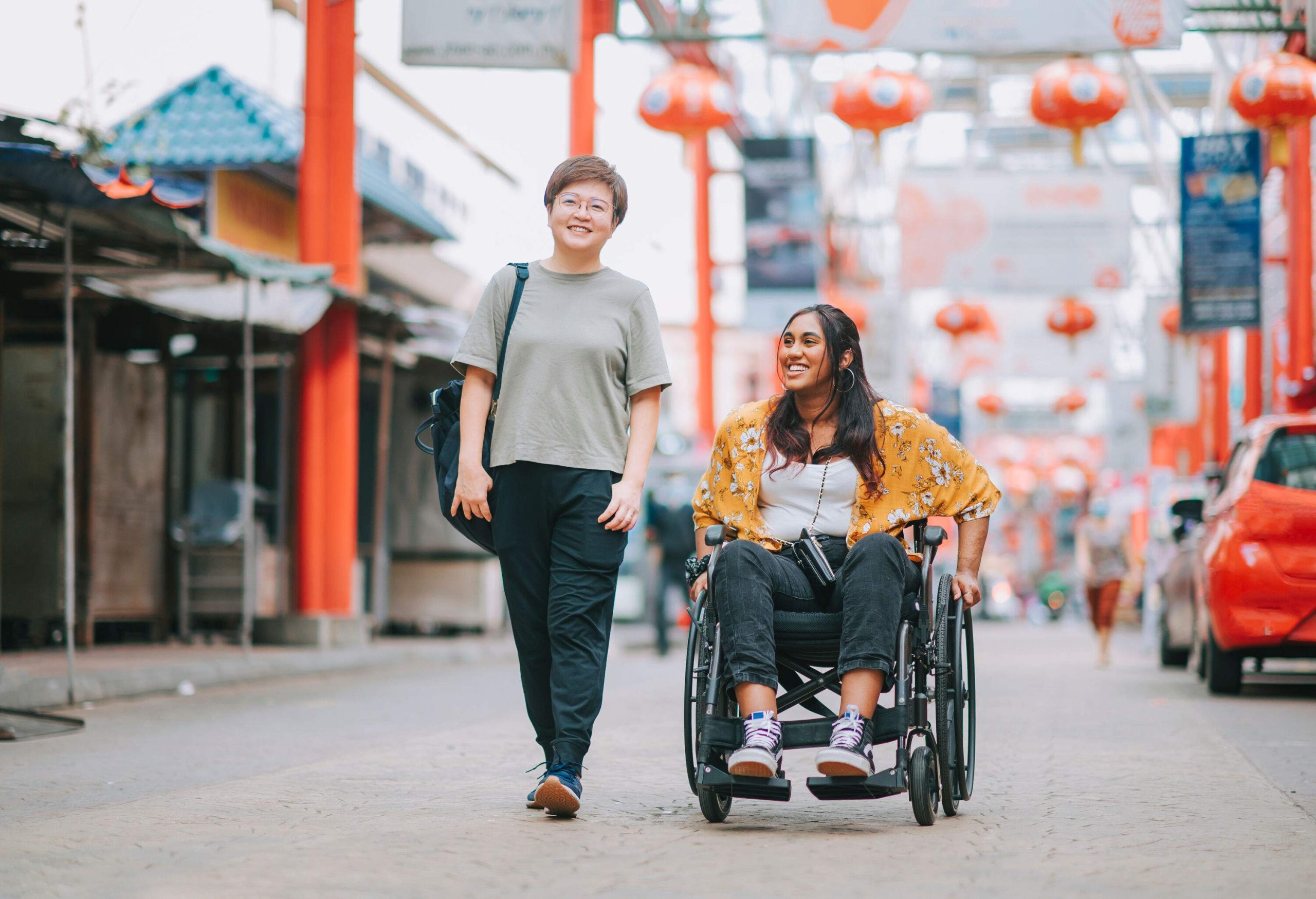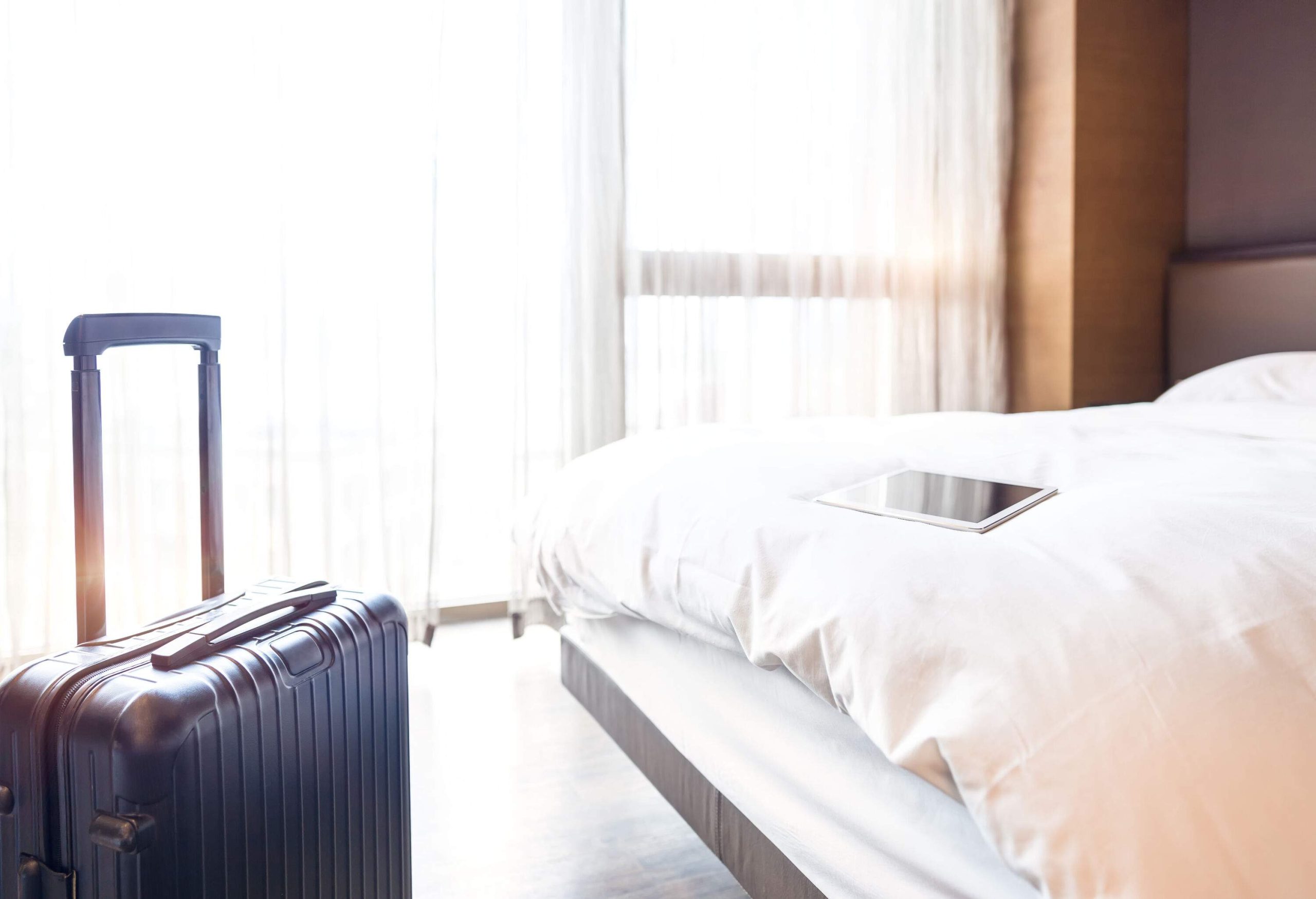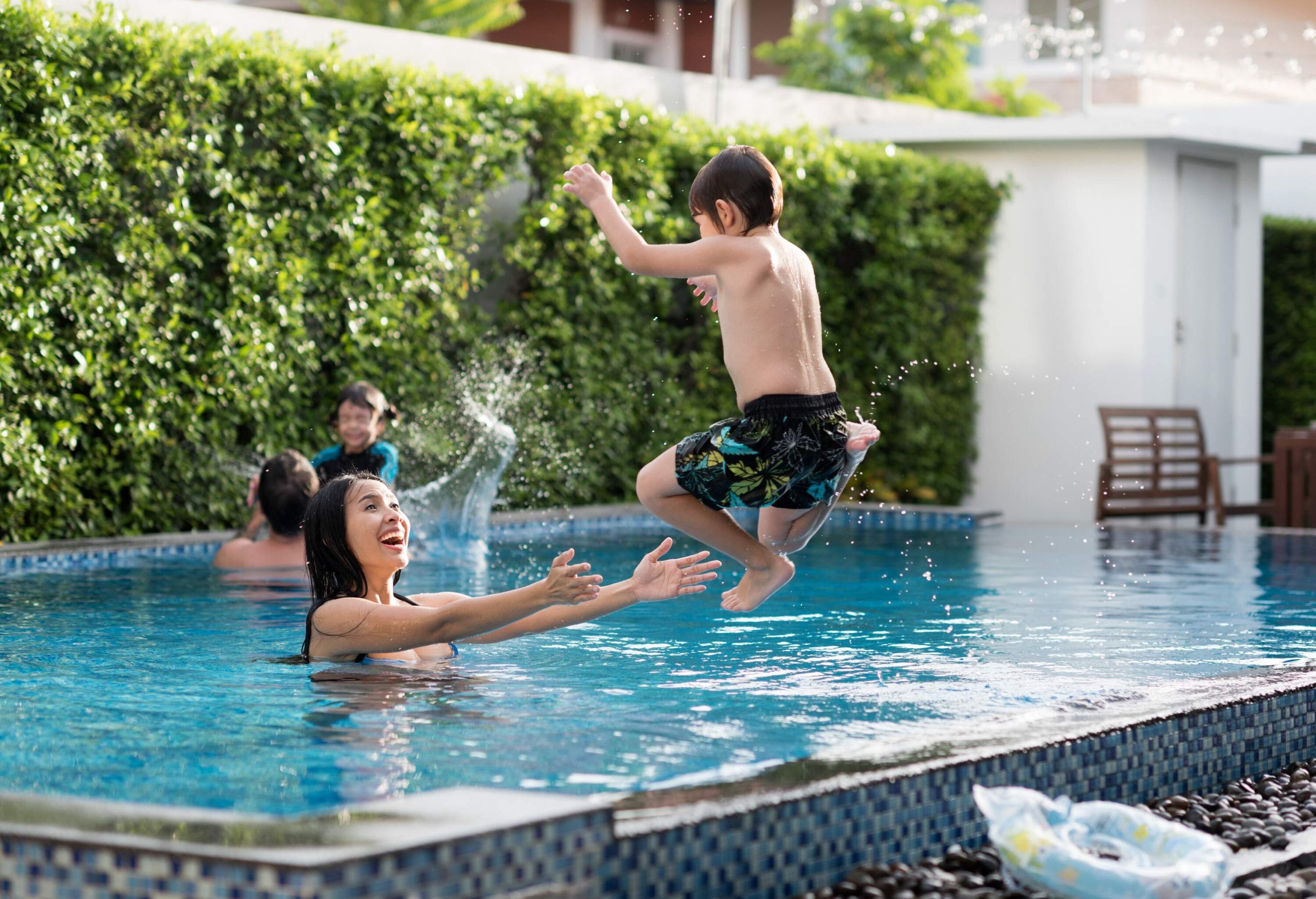Image description: View of river at sunrise running through canyon with mountains in the background in area of Canon de Fernandez in Durango, Mexico.
Whether traveling domestically or abroad, there are often challenges that arise over the course of a journey. This is especially true for those with disabilities, as certain experiences and features may not be universally designed nor inclusive for every traveler. We spoke to Marlene Valle, Mexican-American traveler and blogger behind Deafinitely Wanderlust, to learn more about her perspectives and experiences as a deaf traveler. Here is what she had to say about becoming more open-minded while traveling, navigating destinations solo, and advice on how we can better support the deaf community and people with disabilities.
How did you become inspired to start your blog, Deafinitely Wanderlust?
Back in 2014, I was reading several travel blogs to prepare for my first backpacking trip in Asia with a deaf friend of mine. While there were so many helpful travel guides and tips, there were little to no travel resources for me as a deaf person, including lack of communication strategies and how to navigate the world. Travel stories from a deaf person have been, and still are, very sparse in the media – especially deaf female travelers, like me. Hence, there were a lot of things that I had to figure out on my own during this first time backpacking. That was when I came to realize – wait a minute, why not start a travel blog?! At the time, I started the travel blog with a deaf friend of mine, who later ventured onto her own path to pursue her passion. Because of how sparse it is to find someone like me in the travel industry – I became inspired to share tips and resources and the journey through my eyes with the world.
If you could offer one piece of advice for deaf and hard of hearing travelers, what would it be?
Oooh, it’s tough to just pick one thing. Your fears are undoubtedly and absolutely valid, but they’re not worthy to be in control and hold you back from living the only life that you have.
If you could offer one piece of advice for travelers with disabilities as a whole, what would it be?
We all have experienced comparing ourselves to other travelers, but there’s no one right way to travel. Whether it’s solo travel, traveling with an abled person to ease your anxiety, etc., this is your journey. Not ours, not theirs – but yours. You’re the author of your travel journey.
What changes do you think would largely benefit the world of travel as it relates to accessibility?
First and foremost, hire deaf, hard of hearing and many other disabled people in the travel and hospitality industries. Set up an accessibility team of different disabled people and/or hire deaf or disabled consultants! We have the experience, and we know all the different areas that many hearing or abled people don’t recognize or understand. Connect or partner with local disability organizations, too. I have so many more suggestions, but sharing one last piece of advice is to have training opportunities or attend a workshop to learn more about different disabled communities by and from us.
In what ways have you been advocating for more accessible travel?
I’ve been advocating for more accessible travel at different events where I’ve been invited to speak and for different articles that are focused on the travel industry. I point out the importance of accessible travel in some Facebook groups or travel platforms that I’m a part of. Although I’ve shared my experiences on social media before, I haven’t been active lately so stay tuned for future content on accessible travel!
What, in your opinion, is the most important factor to consider in being a responsible and open-minded traveler?
This is a great and tough question, because I’m trying to scramble words to share one factor! Be willing to consider all perspectives, including moments where you’d have to re-learn or unlearn what you’ve previously assumed, try to recognize, explore and understand the impacts of your attitudes and actions on all beings – regardless of your intention.
How can other travelers be allies to those that are hard of hearing?
Learn more about the deaf communities and deaf culture from the members of the communities. One way to do so is by following different deaf content creators, deaf blogs, or deaf youtubers! You’d learn the misconceptions and different ways to communicate with us. Be mindful that we’re all quite diverse and have different needs and experiences – don’t paint us in one brush stroke. And when you see deaf or hard of hearing travelers facing discrimination and inaccessibility, please don’t be a bystander – stand with us!
What is one experience you’ve had while traveling where your expectations were exceeded?
There are many similar moments like this, but there is one experience that comes to mind when I stayed with a local family. Oftentimes, I’ve already mentally prepared myself for some audist or ableist attitudes, but there were moments when I was truly amazed with people’s kindness and understanding when they’re communicating with me through gestures and written or typed communication methods. Instead of insisting I try to talk or make me read their lips, they truly exceeded my expectations and genuinely worked together with me to communicate.
How has your own travel experience shifted over the years?
Initially, I was pretty insecure and anxious about how I’d be able to navigate countries or local areas where English isn’t known or isn’t provided in public settings. Thanks to many available translation apps, I learned more features over the years that have helped me navigate – such as offline translation (which is downloaded to your phone), language translation through images, and more. With these tools, I gained creative communication skills as well as more confidence in myself and in my ability to communicate with local people.
How have your experiences traveling shaped other areas of your life (i.e. relationships, mental health, newfound interests)?
Traveling has made me fall in love with digital storytelling. I don’t consider myself an expert at all, but I’ve grown to love it when I started meeting deaf people in different countries. As I learned about their local deaf culture and their stories, I became humbled that they’d permitted me to share their stories to the world on my platform. I hope that these stories can help dismantle some misconceptions about the deaf communities.
Traveling also helped me to be more present. Traveling can be stressful, without a doubt! But there are moments where I can be still, people-watch and just embrace life more. I’ve been dealing with my own mental health challenges for years, but traveling has been a huge light for me. Seeing the different beauties in the world has helped me to continue to strive forward.
How has the pandemic impacted you and others with a hearing disability during your travels (i.e. does it present challenges when people are wearing masks and you cannot read their lips)?
People wearing masks has definitely presented an additional challenge for me and many deaf communities, although I understand the need to wear a mask during the pandemic. With the non-transparent masks, it means I no longer have access to reading lips and facial expressions. Although lip-reading generally isn’t effective, it’s still personally one of the essential communication tools that had helped me decipher some of the words they were saying while reading facial expressions.
What’s left to read from their masked face is reading their eyes, eyebrows and body language. In many situations, there’s no way for me to figure out what they are saying – so I find myself in situations where I have to keep insisting them to write it down, use a note app or to speak into my phone when I open up the speech-to-text app. Some situations really provoke a lot of anxiety, such as the TSA or Airport Customs Officer who was really in a hurry or seemed really impatient (based on their eyes, eyebrows and body language).
